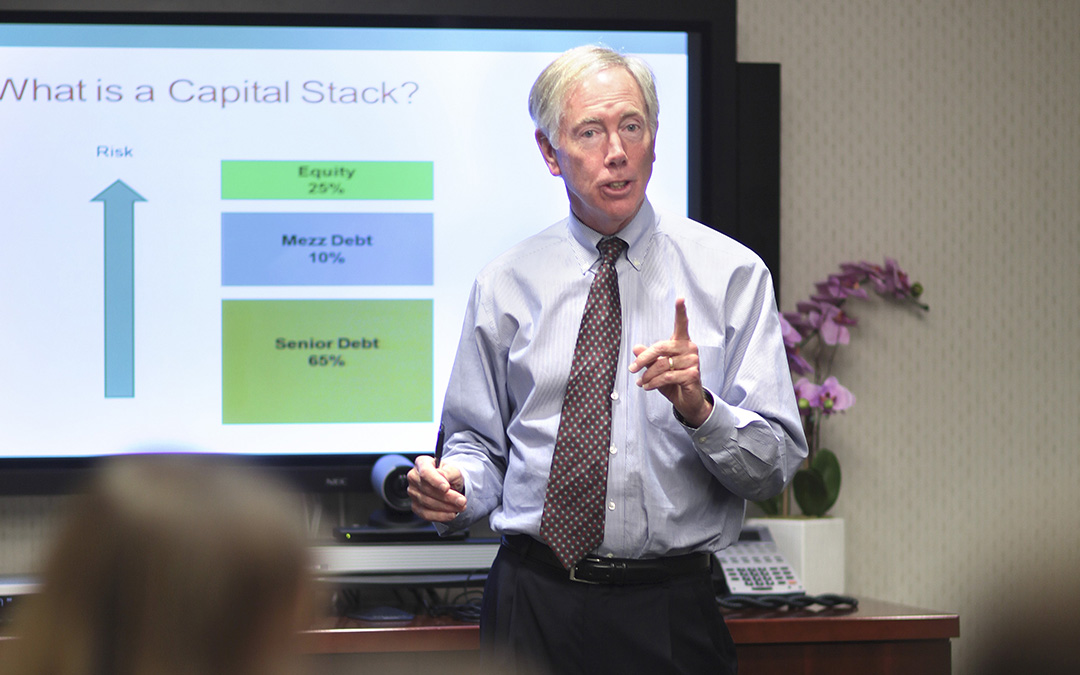
Pictured above: David J. Reilly, the retired President and CEO of Cornerstone Real Estate Advisors, and a longtime friend of and instructor in the UConn Center for Real Estate and Urban Economic Studies program, received the Center’s Lifetime Achievement Award from Director John Glascock during the Center’s 14th Annual Awards Banquet on April 14. Reilly’s contributions to UConn have been many, including facilitating Cornerstone’s $1.4 million pledge in support of the program; co-teaching a course called “Real Estate: A Practical Approach,” and inviting students to visit Fan Pier, the $4 billion Boston waterfront development project in which Cornerstone is a partner.
